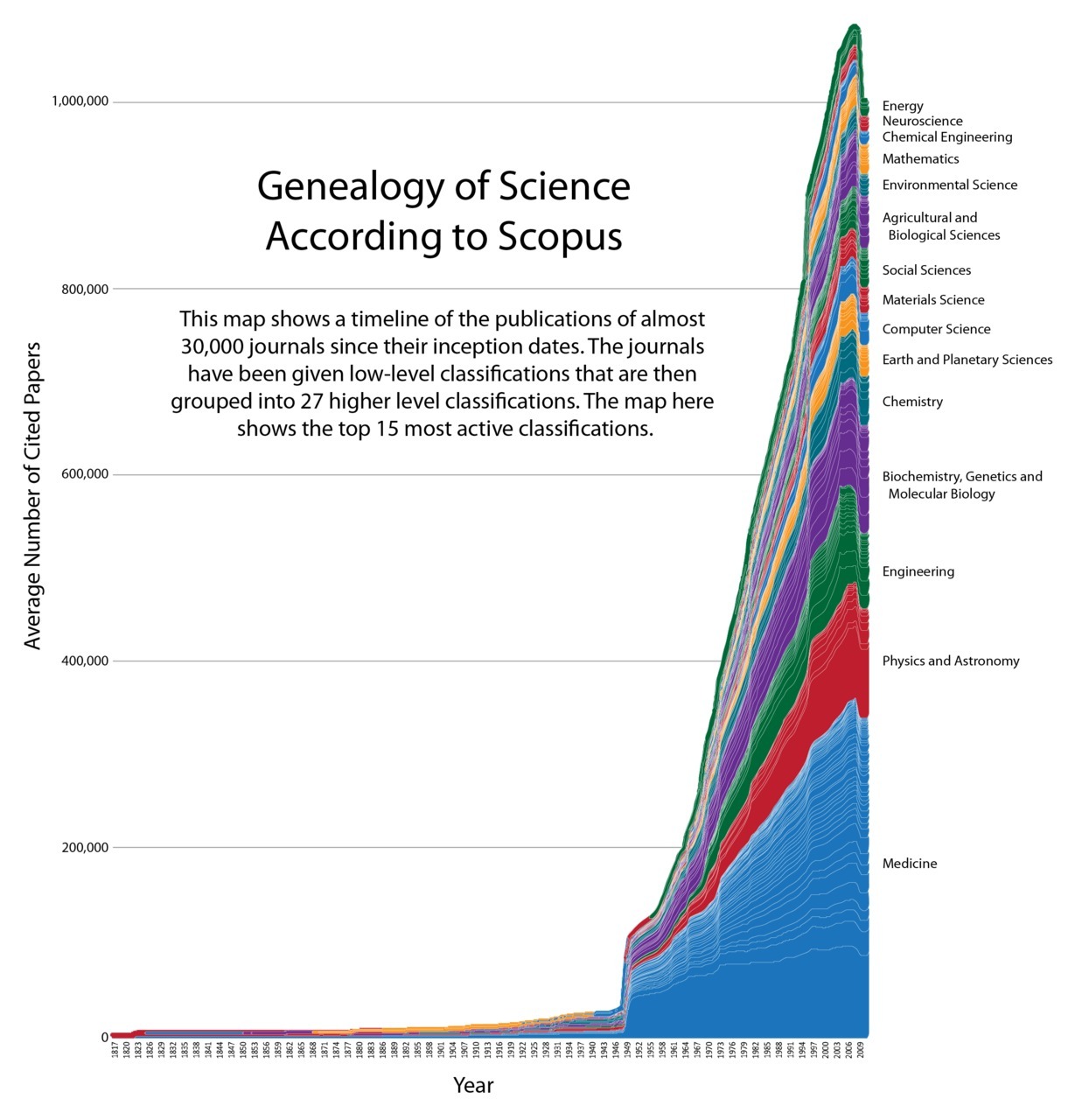
FRIDAY, JULY 31, 2015: NOTE TO FILE

Peak Science
Information descent
Eric Lee, A-SOCIATED PRESS
TOPICS: SCIENCE, FROM THE WIRES, WAY DOWN
Abstract: And when will peak everything come? Maybe 2030 to 2070, a guess, but some indicators may have peaked, and whenever the average everything peaks, expect it will be ten years before widely admitted. If one discounts all the junk science and irreproducible results, all the motivate science that rhymes with motivated reasoning, then pehaps peak science has already happened.
TUCSON (A-P) — It may be that the pulse of progress in the advance of science (and everything else) peaked about 2007. The way down could mirror the way up. Preserving the information that has been generated, the fruit of the growth pulse, should be a priority. The embodied energy in the information is immense and the energy cost of replacing it may be out of future reach. The cost of preserving the information digitally in a box buried in the middle of a mountain may be affordable, but preserving the technology and level of education needed to access it in a meaningful way will not be trivial. Advancement will still be possible on the way down, albeit at a slower rate, if we can do better than bury a copy somewhere.
Computer technology should get priority power over the need to drive fast in electric cars. Information needs to be organized to be accessible. The Library of the Info Ether needs to do better than current Google search results. Among the information to preserve is information processing which may well require more than a little help from AI as librarian.
There are two forms of information at risk: About 4 billion years of genetic information and the recent explosion in memetic information. Storing the ATCG sequences for as many organisms as possible in the middle of a mountain somewhere is not the better plan. Preserving a diversity of life on Earth in functioning ecosystems would be better. Preserving memetic cultural evolution would also be nice in functioning complex societies (watershed management units).
Humans can live without electric cars, refrigerators, or electric washing machines. Many live without actually using much information, but they live rather well, thank you, because of the information they indirectly depend on that is needed, along with energy, to keep the system going. A future without information technology, without access to the Info Ether, may be a far meaner, nastier, more brutish and short one than otherwise. If most humans come to believe the earth is flat, we'll merely have taken a 2,500 year step back. But there will be no vast reservoir of fossil fuel to fuel another peak, and recovery of information lost may be on the never to be recovered side of eternity. At least we now know there are other planets in the cosmos who may have a better chance if we miss ours.

